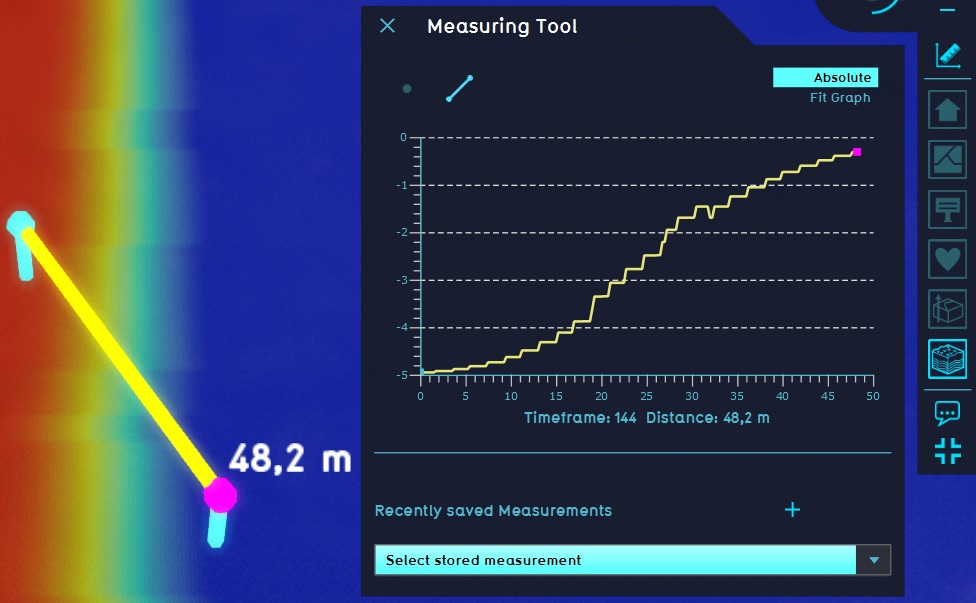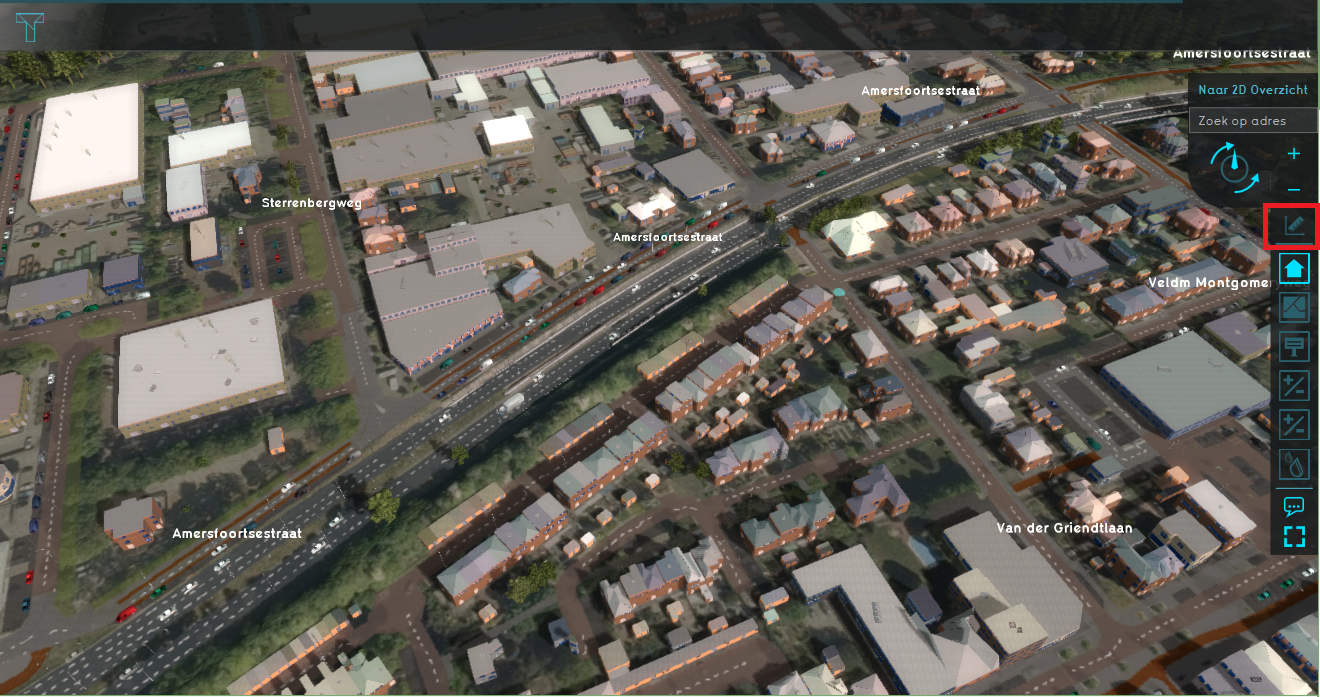Measuring tool: Difference between revisions
No edit summary |
|||
| Line 29: | Line 29: | ||
* https://www.tygron.com/en/2020/04/20/overlay-result-analysis/ | * https://www.tygron.com/en/2020/04/20/overlay-result-analysis/ | ||
}} | }} | ||
[[Enginelink]] | [[Category:Enginelink]] | ||
Revision as of 09:44, 7 January 2021
What is the measuring tool
The measuring tool is an instrument available in the Tygron Platform meant for consistent and multi-dimensional data retrieval from grid overlays. It's part of the session interface, and can be found in the overlay bar.
How to use the measuring tool

The measurement tool can be used to measure the values of a grid overlay. Measurement are made by placing a point or line in the 3D world. Measurement elements can be drawn freely, and saved to be loaded again later. This allows new measurements to be made in the exact same location in the 3D world, either of the same overlay (useful for comparing earlier results with a different scenario) or of other grid overlays (to compare exact scoring or calculation results for a precise given location).
Making measurements
The measuring tool can be opened at any time that viewing arbitrary overlays is available. The measuring tool can be opened, either before or after opening the overlay of which the values are to be measured in detail. While the measuring tool is open, it's possible to click any where in the world to place a measurement, and see the measured values in a graph in the measuring tool. Clicking anywhere in the 3D world again places a new measurement element (removing the old one). The graph will then be populated with the values of the new measurement element.
Import, export and saving measurements
When a measurement element is placed in the 3D world, the measurement element can be saved. This does not store the values found by the measurement element but the measurement element itself. This allows for repeated measurements of an identical location or cross section, for the purposes of comparing results. Saving a measurement element will include the currently opened overlay, so that the overlay can be reopened automatically when the measurement element is reloaded.
Note that data in the associated overlay changes after saving a measurement element, the values associated with the measurement element change as well, leading to new values to be downloaded when the measurement is downloaded.
